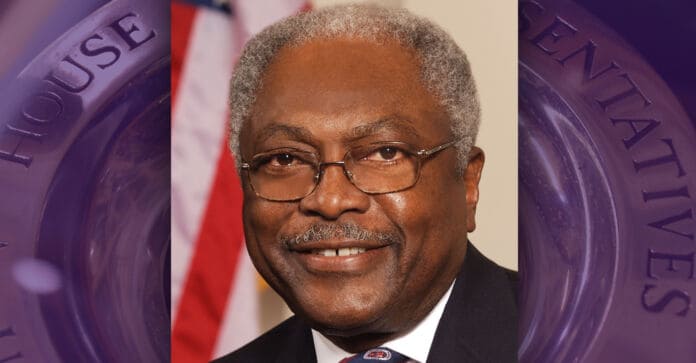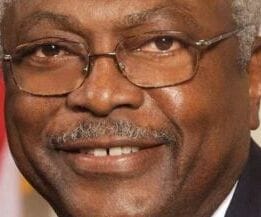
NNPA NEWSWIRE — In March, Democrats passed President Biden’s American Rescue Plan (ARP) without a single Republican vote. In addition to making sure we had enough vaccines and getting them out quickly and equitably, the ARP scaled up testing and tracing and addressed the shortages of personal protective equipment. The ARP expanded the Child Tax Credit, which lifted nearly half of America’s children living in poverty out of poverty, and the Earned Income Tax Credit; the House-passed Build Back Better legislation will extend these expanded tax credits through 2022.
By Congressman James E. Clyburn (D-SC), House Majority Whip

The 1st Leg
In March, Democrats passed President Biden’s American Rescue Plan (ARP) without a single Republican vote. In addition to making sure we had enough vaccines and getting them out quickly and equitably, the ARP scaled up testing and tracing and addressed the shortages of personal protective equipment. The ARP expanded the Child Tax Credit, which lifted nearly half of America’s children living in poverty out of poverty, and the Earned Income Tax Credit; the House-passed Build Back Better legislation will extend these expanded tax credits through 2022. The American Rescue Plan lowered health insurance premiums for many in the Affordable Care Act marketplace and provided resources to state and local communities to reopen schools and lower health care costs.
The ARP provided rescue checks of up to $1400 per individual, housing assistance to keep people in their homes or apartments and nutrition assistance for 40 million Americans.
The 2nd Leg
On November 15th President Biden signed a second consequential piece of legislation, the bipartisan Infrastructure Investment and Jobs Act (BIF). Despite receiving only 19 Republican votes in the Senate and 13 in the House, all States, and territories – red and blue alike – will benefit from Biden’s vision for infrastructure assistance. For the 173,000 miles of highway and 45,000 bridges in poor condition nationwide, $110 billion will be invested in repairing and replacing this critical infrastructure. Another $55 billion is coming to improve our states’ water and wastewater infrastructure. Public transportation will be improved with $39 billion, airports will receive $25 billion for upgrades, and our ports and railroads will receive another $17 billion and $66 billion respectively. There is $7.5 billion to expand the electric vehicle charging network.
The infrastructure package also addresses climate change. Last year, the United States experienced 22 extreme weather events, costing nearly $100 billion collectively. There are funds in the bill to mitigate flood and storm damage and build resilient communities.
I have said, and honestly believe, that the inclusion of $65 million commitment for broadband—reflecting many of the provisions of my and Senator Klobuchar’s Accessible and Affordable Internet for All legislation alone makes the BIF worthy of passage. COVID-19 exposed the vast digital divide that plagues families and communities all over America. That divide impacts the ability to work, attend school, or to receive efficient and effective health care services. The House Rural Broadband Task Force, which I established and currently chair, worked to ensure this significant investment in high-speed broadband.
The 3rd Leg
Last Friday the House passed, and sent to the Senate, Build Back Better (BBB) legislation I have referred to as the 3rd leg of a 3-legged stool, that balances President Biden’s rescue efforts, and brings balance to the lives of millions of Americans. My priorities in this bill include the 2.2 million Americans who are without healthcare because they live in the 12 states that have not expanded Medicaid. If enacted, this legislation will provide subsidies for these low-income residents falling into the coverage gap in the non-expansion states enabling them to purchase coverage on the ACA Marketplace at no cost.
Another priority of mine is addressing the dearth of affordable housing that currently exists. The BBB invests $151 billion toward our nation’s affordable housing infrastructure including funding to rehabilitate millions of affordable housing units, bring sustainable homeownership within reach for millions of first-generation homebuyers, eliminate the nation’s flood insurance program debt, and provide other critical investments in vulnerable communities across the country.
BBB also includes a $555 billion investment in clean energy and climate. It will help cut greenhouse pollution and will reduce consumer energy costs, create hundreds of thousands of high-quality jobs, and advance environmental justice for vulnerable communities. Families will also benefit from $3.5 billion national investment in weatherization for their homes, which will improve energy efficiency and reduce energy costs.
I am especially pleased the Build Back Better Act includes $9 billion to support minority-serving higher education institutions. These funds will improve the research capacity and research and development infrastructure at these institutions, as well as strengthen their academic, administrative, and fiscal capacity. These funds build upon the $2.6 billion HBCUs received from the American Rescue Plan to address the impacts of the pandemic on under-resourced institutions.
A lot of lip-service has been paid to meeting America’s challenges over the past several years. America is a great country. We are challenged, however, to make its greatness accessible and affordable for all Americans. My faith teaches that we will be judged by our deeds not our words. I am proud of these substantive deeds President Biden and this Democratic Congress are getting accomplished for the American people. There is clear evidence that more needs to be done but I have faith that this President and this Congress are not done yet.


